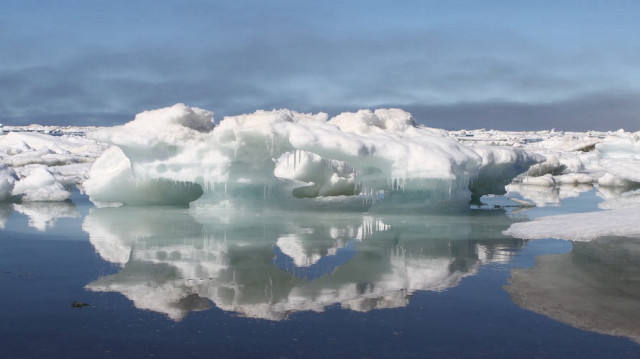
'Ominous milestone': Arctic warming 4 times faster than global average, news study highlights
- ‘Any reductions in emissions would help preserve sea ice,' says lead author of research
The Arctic Ocean could experience its first “ice-free” day as early as 2027, according to a new study, signaling a profound shift in the planet's climate.
Even under the most optimistic scenarios, this "ominous milestone for the planet," is inevitable within the next two decades, researchers caution in the study published in Nature Communications on Monday.
"The first ice-free day in the Arctic won't change things dramatically," said co-author Alexandra Jahn, a climatologist at the University of Colorado Boulder.
"But it will show that we've fundamentally altered one of the defining characteristics of the natural environment in the Arctic Ocean, which is that it is covered by sea ice and snow year-round, through greenhouse gas emissions."
Arctic sea ice, which has been shrinking by more than 12% per decade since satellite monitoring began in 1979, plays a critical role in regulating global temperatures and supporting marine ecosystems.
As the ice melts, darker ocean waters absorb more sunlight – a feedback loop that accelerates warming.
This phenomenon, known as the albedo effect, has transformed the Arctic into a region warming four times faster than the global average.
- 'We want to be prepared'
Using 11 climate models and 366 simulations, the study estimates the ice-free threshold could be crossed within three to six years if unusually warm conditions occur. Most scenarios place this event in the 2030s, highlighting the urgency of cutting greenhouse gas emissions.
Lead author Celine Heuze, a climatology researcher at the University of Gothenburg in Sweden, underscored the importance of preparation.
"Because the first ice-free day is likely to happen earlier than the first ice-free month, we want to be prepared. It's also important to know what events could lead to the melting of all sea ice in the Arctic Ocean," Heuze said.
While the findings are stark, the researchers emphasize that significant reductions in carbon emissions could delay this milestone and mitigate its broader impacts.
"Any reductions in emissions would help preserve sea ice," Jahn added, offering a glimmer of hope in the face of a rapidly changing Arctic.

